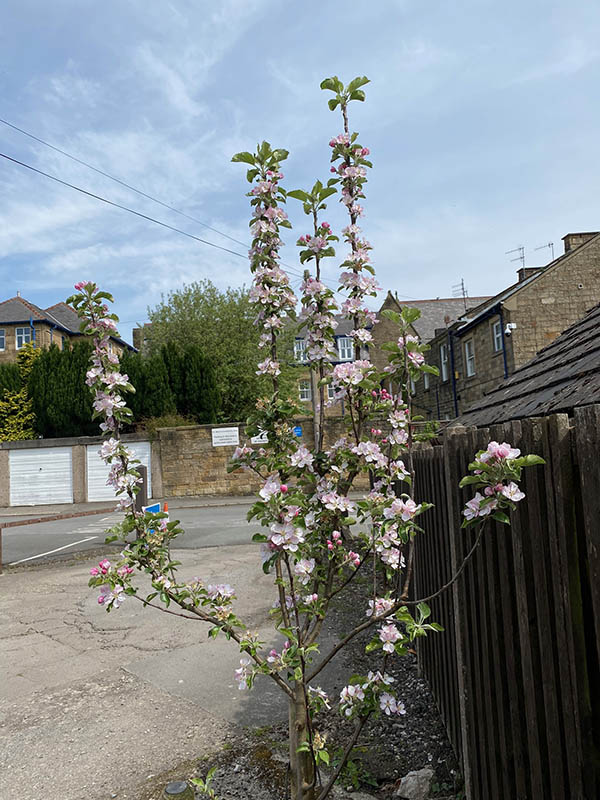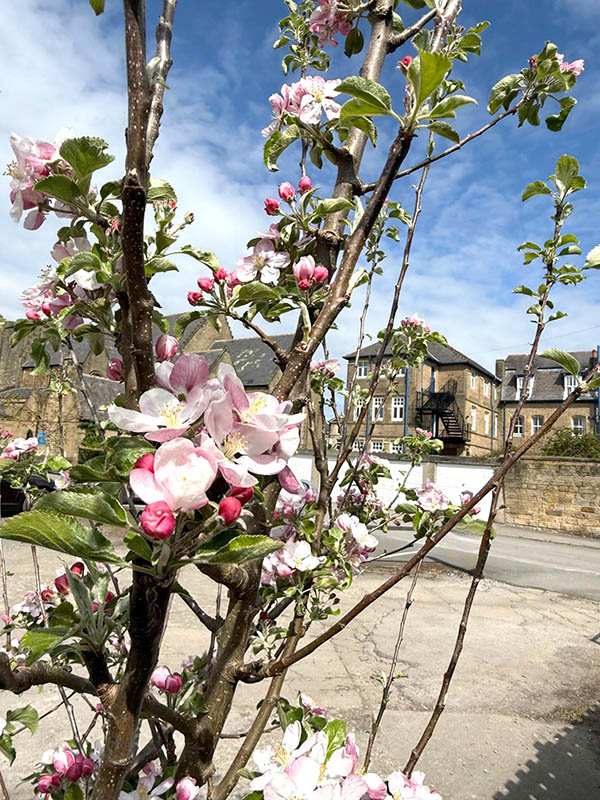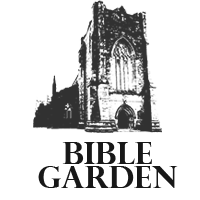Apricot Tree (Prunus armeniaca)
Map Position: 19
There are numerous species of apple and apple trees are found throughout the world, except in regions with extreme climates. Apples are popular fruits that can be eaten fresh from the tree, cooked, and processed in various ways, used as tea, juice, or fermented as cider or spirit, etc. Different varieties of apples keep well and are important for providing food in lean times.
The term apple is used in many ways in language, for example, "apple of the eye", which refers to something very precious that must be protected at all costs, "Adam's apple" for the voice box, "horse apples", as a trademark and name for computers and other uses. And in mythology as something to argue about: "quarrel apple" and so on. Its value for health is referred to in the saying "An apple a day keeps the doctor away".
There is much confusion about the historical names for apricot and apple among various biblical scholars. The wild-growing apricot is now understood to be the tree mentioned in the Bible as an "apple". However, the word "apricot" as such is not mentioned in the Bible. Nevertheless, we have planted two apricot trees in our Bible Garden. Apples need a pollinator to fruit, this is why we planted four varieties of apples:
- 1a. Moses Tree
- 1b. Ten Commandments
- 1c. King David
- 1d. Easter Orange
So hopefully within a few years we will get plenty of apples.
Biblical
The “apple of the eye” is mentioned in some texts in the English translations of the Bible. In the Hebrew and Latin texts, it is the “pupil” or the “eyeball” with no reference to the apple.
Psalm 17.8: “Keep me as the apple of the eye”.
Deuteronomy 32.10: “He […] kept him as the apple of his eye”.
Proverbs 7.2: “keep my commandments and live, keep my teaching as the apple of your eye”.
Sirach 17.22 (RSV): The Lord “will keep a person’s kindness like the apple of his eye”.
Zechariah 2.8: “Thus said the Lord… one who touches you touches the apple of his eye”.
The apple tree itself is also mentioned in many verses. A common misconception is that “the tree of the knowledge of good and evil” (Genesis 2.9) is an apple tree; but most scholars today believe it to be an apricot tree. Latin for “apple” is “malus” and Latin for “evil” is “malus” as well; it is therefore of no surprise that there is some confusion. In the Middle Ages artists liked to paint the fall of man in paradise with Eve offering Adam an apple, in the background a serpent on a tree.

Many people regard apples as something very special, better than other fruit. It is for example used in a parable: “A word fitly spoken is like apples of gold in a setting of silver” (Proverbs 25.11).
For Solomon, who became famous for his unparalleled wisdom, the most beautiful tree is the apple tree; its fruits are sweet, its scent is wonderful. In the Songs of Solomon, his bride compares him to an apple tree: “As an apple tree among the trees of the forest, so is my beloved among the young men. With great delight I sat in his shadow, and its fruit was sweet to my taste” (Song of Solomon 2.3). “Sustain me with raisins, refresh me with apples, for I am sick with love” (Song of Solomon 2.5).
Solomon describes his bride devotedly: “Oh may your breasts be like clusters of the vine, and the scent of your breath like apples” (Song of Solomon 7.8).
And Solomon has pleasant memories when he thinks of an apple tree: “Who is coming up from the wilderness, leaning on her beloved? Under the apple tree I awakened you” (Song of Solomon 8.5).
Like it is pleasant when fruit tree is flourish and produce fruits it is a disaster when important plants perish, among which is of course the apple tree: “The vine dries up; the fig tree languishes. Pomegranate, palm, and apple – all the trees of the field are dried up, and gladness dries up from the children of man” (Joel 1.12).
